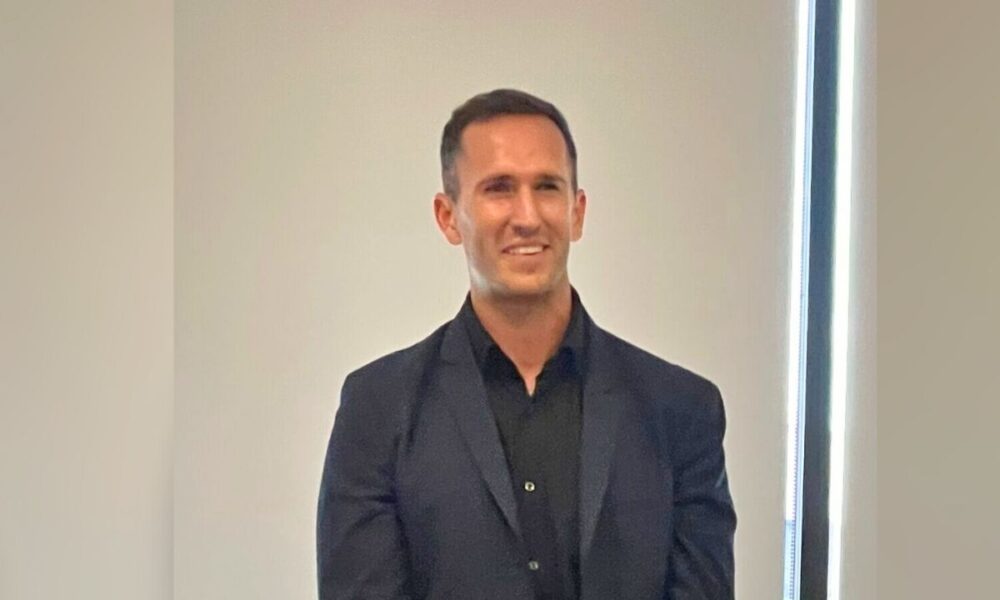At an event hosted by Harwood Salon event Tuesday evening, “school choice evangelist” Corey DeAngelis delivered a sweeping address on the rise of education freedom, offering sharp analysis of the 2024 presidential race, an optimistic forecast for Texas’s new voucher-style program, and a pointed rebuke to critics warning about regulation of private schools.
Speaking at The Clubs of Prestonwood in Dallas, DeAngelis told the audience the education reform movement had entered a new phase of dominance, claiming, “We are winning so much, I’m almost getting tired of winning.” He noted that there are nearly a dozen states offering school choice through Education Savings Accounts (ESAs).
DeAngelis linked the school choice issue directly to the dynamics of the 2024 presidential race, asserting that Kamala Harris ultimately declined to choose Pennsylvania Gov. Josh Shapiro as her running mate because he had taken various positions, sometimes appearing to favor school choice, which Corey said would be anathema to the Teacher’s Union. While DeAngelis acknowledged that this was likely not the only reason, he argued that the choice underscored the political salience of education policy and union pressure.
Harris went on to select a different running mate, and the Democratic ticket lost all seven battleground states, including Pennsylvania. Though DeAngelis’ interpretation is speculative, it echoes a broader narrative among school choice proponents who argue that public education has become a culture war battleground with real electoral consequences.
Turning to Texas, DeAngelis expressed strong support for the state’s newly passed Senate Bill 2, which created an ESA program capped at roughly 100,000 students and limited by income. Though he acknowledged the measure wasn’t perfect, he argued it was a historic breakthrough after decades of failed attempts.
“Before 2023, school choice has quietly died every year in the legislature,” he said. But with the passage of SB2, “the political winds are shifting in our favor.”
Of Texas’s late entry into the school choice movement, he joked: “You may be late to the party, but you can still enjoy the fiesta.”
DeAngelis predicted the state would see far more demand than the 100,000-student cap allows and said the resulting pressure would likely lead lawmakers to expand the program in future sessions, as has occurred in other states.
The Dallas Express inquired about what school choice would look like in the long term. DeAngelis emphasized diversity in models — including homeschooling, micro-schooling, and hybrid approaches — but predicted that, for now, “the vast majority will go to brick and mortar private schools.” While he homeschools his daughter, he said he has no preference for where parents send their children, as long as they make the decision.
Some in the audience expressed concern that funneling public money into private options could backfire if even one private school misuses the funds, prompting lawmakers to impose new regulations on the entire private sector. DeAngelis dismissed the concern as hypothetical and unfounded.
“Show me where that has ever happened,” he said, noting that school choice programs have grown for three decades, in several states, without sparking such a regulatory backlash.
Throughout his talk, DeAngelis criticized what he called the “educational industrial complex,” mocking the American Federation of Teachers for treating children as if they were government property. “We don’t assign people to grocery stores,” he said. “If you don’t like government cheese… if you get food poisoning, ‘too bad’ take it up with the grocery board and triple our budget.”
He also took aim at Education Secretary Linda McMahon, saying he hoped she would “body slam that unconstitutional department,” and expressed frustration that school boards had become ineffective in pushing reform, with some parents labeled “domestic terrorists” for speaking out.
Despite his admiration for Milton Friedman, the Nobel Prize–winning economist who helped pioneer the school choice movement, DeAngelis said he slightly diverges from Friedman’s views on the government’s role in education. “There should be no government role in education,” he said.
He attributed the surge in support for school choice to the pandemic lockdowns, arguing that many parents only began to grasp what their children were being taught when classes moved online. “There has been more advancement in four years than the last 40 years,” he said, crediting union opposition to reopening as the moment that “awakened a sleeping giant.”
The event, hosted by the American Institute for Economic Research as part of its Harwood Salons series, was titled after DeAngelis’s 2024 bestseller, The Parent Revolution: Rescuing Your Kids from the Radicals Ruining Our Schools. DeAngelis was introduced as “the most effective school choice advocate since Milton Friedman,” a label he has adopted in both media appearances and on the road, where he has emerged as a leading voice in the national debate over public education.


